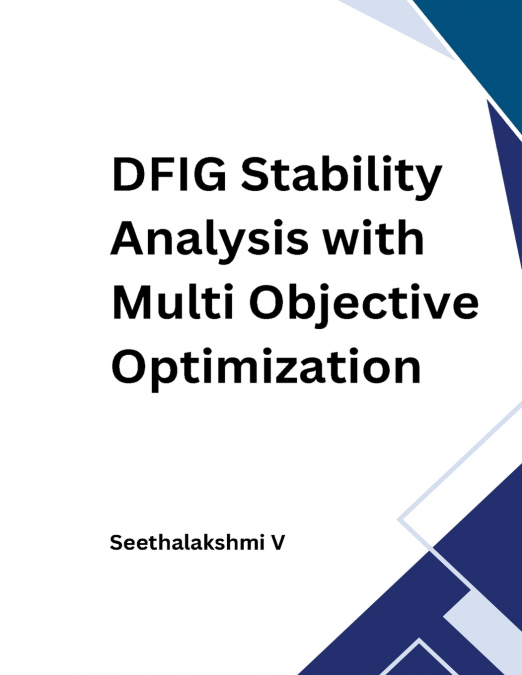
V Seethalakshmi
DFIG Stability Analysis with Multi Objective Optimization, authored by Seethalakshmi V, delves into the intricate study of stability analysis and control strategies for Doubly Fed Induction Generators (DFIGs) in the context of wind energy systems. This comprehensive book explores the interplay between DFIGs, power system stability, and multi-objective optimization techniques to ensure reliable and efficient operation of wind turbine generators.The book begins by providing a solid foundation in DFIG technology, wind energy conversion, and power system stability. It covers various aspects of stability analysis, including voltage stability, frequency stability, dynamic stability, transient stability, small-signal stability, and large-signal stability. The significance of stability constraints and the impact of rotor angle stability, power system oscillations, voltage dips, fault ride-through, and low voltage ride-through are thoroughly investigated.A key focus of the book is the application of multi-objective optimization techniques to enhance the stability and performance of DFIG-based wind energy systems. The author explores prominent optimization algorithms such as genetic algorithms, particle swarm optimization, and differential evolution. The concept of the Pareto front is introduced, enabling researchers and practitioners to effectively balance multiple objectives and make informed decisions.Practical aspects related to control strategies and system integration are addressed, including converter control, grid integration, wind farm modeling, and compliance with grid code requirements. The book also investigates reactive power control, active power control, control modes, stability enhancement, controller design, stability indices, sensitivity analysis, dynamic modeling, control parameters, and converter topologies.Furthermore, the book explores the role of power electronics in DFIG systems, examining harmonic distortion, voltage control, frequency control, and control performance evaluation. Systematic analysis techniques are employed to evaluate the effectiveness of control optimization approaches, ensuring the robustness and reliability of DFIG-based wind energy systems.DFIG Stability Analysis with Multi Objective Optimization is a valuable resource for researchers, engineers, and students interested in the stability and control of DFIG systems in the field of wind energy. Its comprehensive coverage, integration of multi-objective optimization techniques, and systematic approach make it an essential reference for understanding and improving the performance and stability of DFIG-based wind turbine generators.